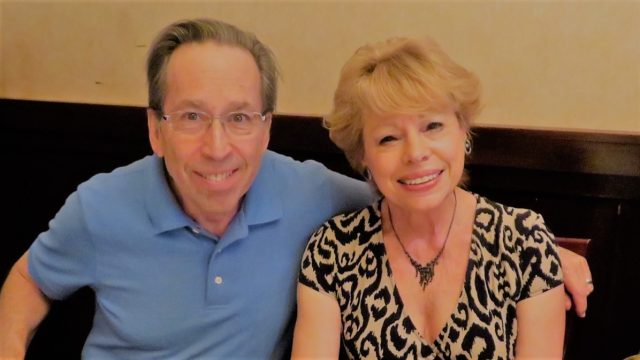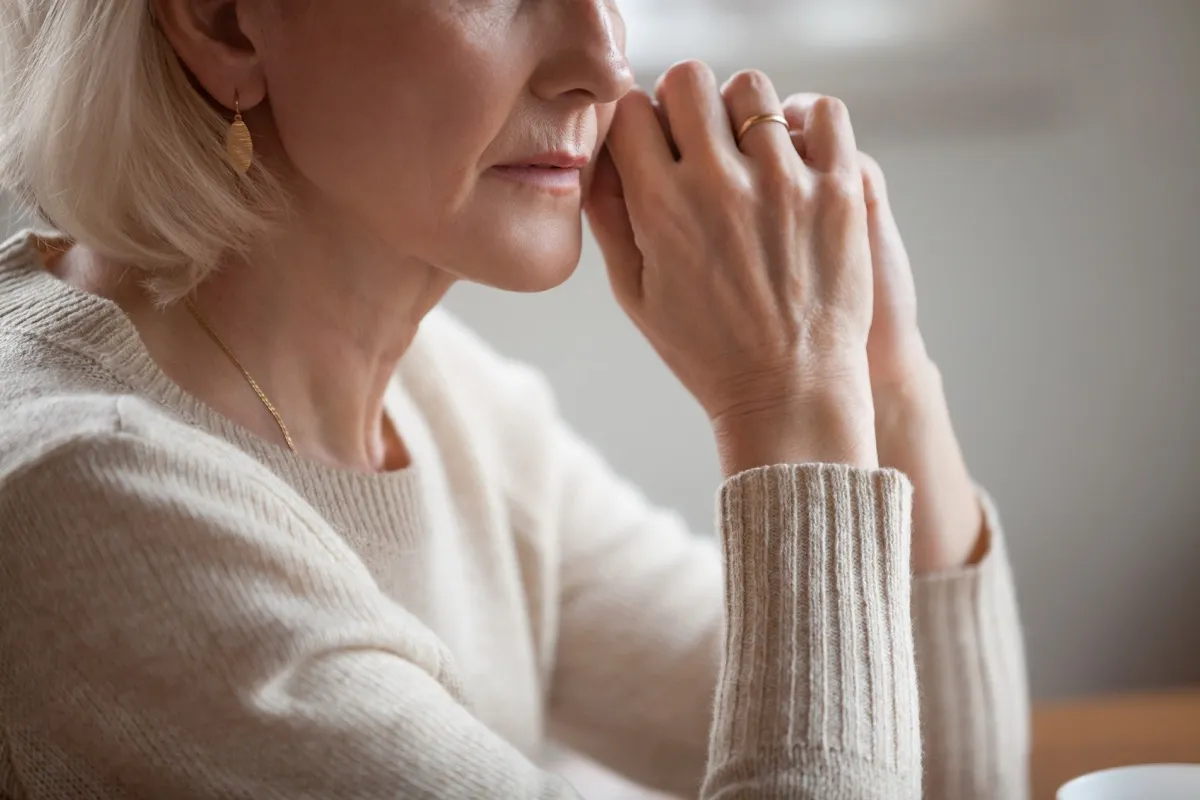I Got Divorced After 40. Here’s How I Found Love Again.

Dating is different when you’re at the mid-life stage. It’s not about finding someone to share your firsts with: your first kid, your first home, or your first job promotion. For me, getting back into dating after my nearly 20-year marriage came to an end was about finding someone to share my nexts and lasts with.
For the last five years of my first marriage, I was struggling with sadness, frustration, and anger. My husband and I were having serious conflicts about parenting issues. He was the “good cop” dad, which positioned me as the “bad cop” mom. He also was a homebody who didn’t want me stepping out as a leader, writer, speaker, and career go-getter. We were moving apart and I was feeling more alone every year. But I stayed and tried to make things work, afraid that ending things would hurt my then-11-year-old son and turn his life upside down.
That fear kept me stuck in a marriage that wasn’t working for far longer than I ever imagined. My son was getting stress headaches from being exposed to conflict at home, and I was getting depressed about living a life devoid of love or happiness. After counseling and several personal growth workshops, I finally knew I had to take action. Initiating my divorce in my mid-40s was the toughest choice I ever made, but I knew something had to change.
Divorcing with a child is particularly complex. But my ex-husband and I got through it by staying focused on the one thing we agreed on: loving our son. So we became co-parents, learning along the way what to say, what to avoid, how to cooperate, and how to support our child as he grew and matured. And we also agreed to separate our social lives from our co-parenting lives.
While I was ready to date soon after the divorce papers were signed, I also understood I shouldn’t be bringing men home to meet my son. I wanted his life to be peaceful and happy without anxiety about my partners.
At first, I found it exhilarating to go out and socialize, my mind racing with romantic fantasies about dating. But before long, I grew quite discouraged. I’d met so many single men in their 40s and 50s who didn’t appeal to me, or who disappointed me when I got to know them a bit.
As time passed, I started identifying a recurring array of “types.” There were the players, out for a good time and nothing more. Then came the sad sacks, who spilled their guts about how life abused them again and again, hoping I’d be their salvation. I learned how to avoid the guys who would come on too strong too soon, and also the lifetime bachelors who didn’t want or need a partner, just liked to drink and dance.

Finally it occurred to me: I didn’t need a relationship to be happy! I could let dating opportunities come along if and when they happened and, meanwhile, I could just live my life the way I wanted to live it.
So instead of focusing on meeting Mr. Right, I did what was right for me. I attended lectures and workshops, went out dancing with friends, enjoyed museums and nature centers, and took vacations with my son and family.
Over the next eight years, I found “Mr. Right Now” a few times. Those relationships, both good and bad, extended from a few months to a few years. But none of them were right for a long-term commitment.
Wiser, yet more jaded, I kept up my social life in a more guarded way. I qualified men more quickly so as not to waste my time (or theirs). I listened more acutely to what they said—and didn’t say—in order to discern if someone was sincere, sober, and sane.
One Friday night, I made plans to meet some gal friends at a nearby singles event. I was the first to arrive. A man holding his buffet plate asked if he could sit next to me at a table for six. I said sure, and we started to chat. By the time my friends arrived, I already knew he had a background in broadcasting, had gotten divorced five years prior, had two grown children, and recently relocated to the area.
He easily joined the conversation with my friends and we danced a few times, something I really love to do. When he walked me to my car later that evening, he asked me out to dinner the next weekend and I said yes.
Rick was a nice guy, very articulate, and attentive, but someone I wouldn’t have thought about dating a few years earlier. He didn’t stand out for his looks, athletic physique, or high-profile career. What caught my attention this time was his great sense of humor and innate ability to laugh at life.
Being a serious woman by nature, I loved that quality about him from our very first meeting. And, as time went on, it brought me joy to hear him laugh at others—and make others laugh as well. His witty remarks not only lifted my spirits, they also diffused my stress. His playfulness helped me to let go and get another perspective on whatever issue I was facing. I liked the “me” I was becoming around him.

Fortunately, my son liked spending time with Rick, too. They were both sports fans and enjoyed easy conversations and witty banter together. My son especially loved Rick’s baseball anecdotes and back-in-the-day stories. That was a huge plus for me, as I could never get serious about a partner my son didn’t like.
Rick and I moved slowly, taking the time to get closer, both physically and emotionally. I met his children, who embraced me as part of the family, and Rick won the seal of approval from both my sister and elderly mother. (Two more checks in the plus column!)
We dated for three years before we got married. Soon, Rick’s daughter had a baby girl, and I became a grandma, which was an unexpected blessing. I treasured my new role in her life and the life Rick and I were building together.
What was different for my marriage the second time around was knowing this: You can’t change anyone other than yourself. I finally learned that lesson and it transformed my understanding of what it means to be in a healthy, successful relationship.
I realized that Rick is Rick, not me. Rick says, does, and thinks things that are totally different than what I would say, do, or think. If I don’t like that, I can accept it or start a conversation about it. But I can’t expect him to change and feel the way I want him to. That was a misunderstanding I brought into my first marriage based on the naivety of youth.
So when conflict arises, Rick and I can find a place of compromise, agree to disagree, or get angry with one another despite the futility of knowing our perspectives are not likely to change. Most of the time, we’re able to meet at one of the first two solutions.
Rick and I have now been married for 15 years. I laugh a lot more, he is more mindful about things he used to overlook, and we are enjoying a sound, solid, safe, and satisfying marriage that works!
So yes, there is romance after divorce—if you look for the lessons you need to learn, keep an open mind, and choose a partner based on character and values that will stand the test of time.
And for even more tips on life after splitsville, check out these 40 Best Ways to Prepare for Divorce.
Rosalind Sedacca, CDC, is a dating and relationship coach as well as a divorce and co-parenting coach, and author of 99 Things Women Wish They Knew Before Dating After 40, 50 & Yes, 60! She has also written several e-books and e-courses on divorce and relationship issues. To pick up her free e-book on successful dating, visit www.womendatingafter40.com. For advice about successful co-parenting, visit www.childcentereddivorce.com/book.
To discover more amazing secrets about living your best life, click here to follow us on Instagram!